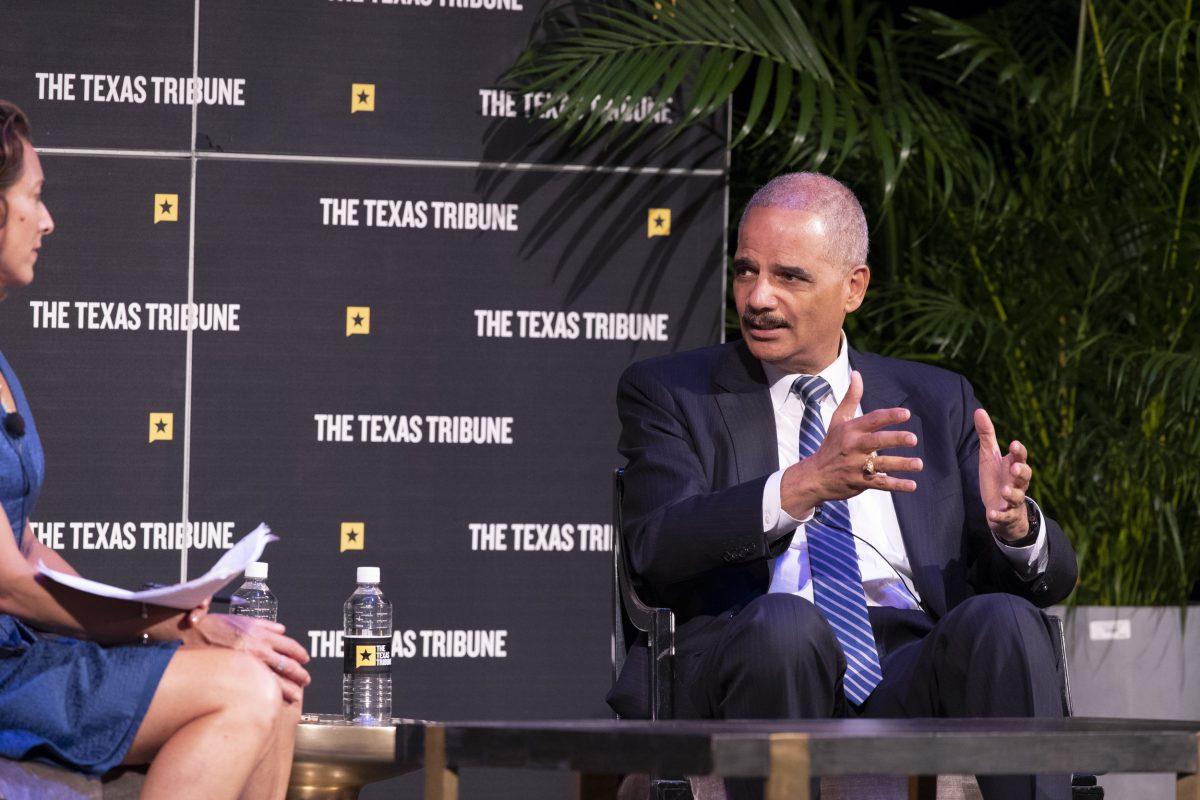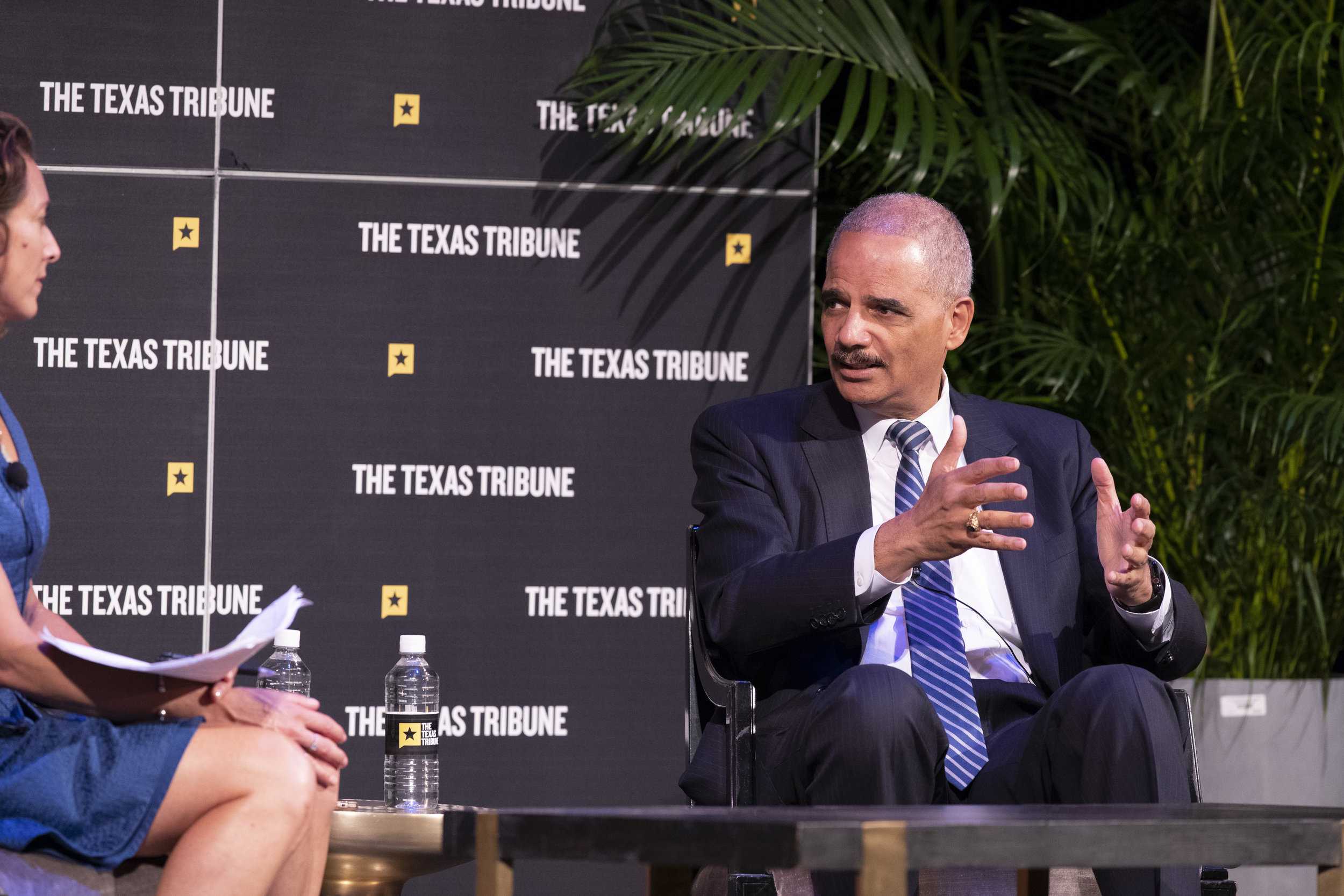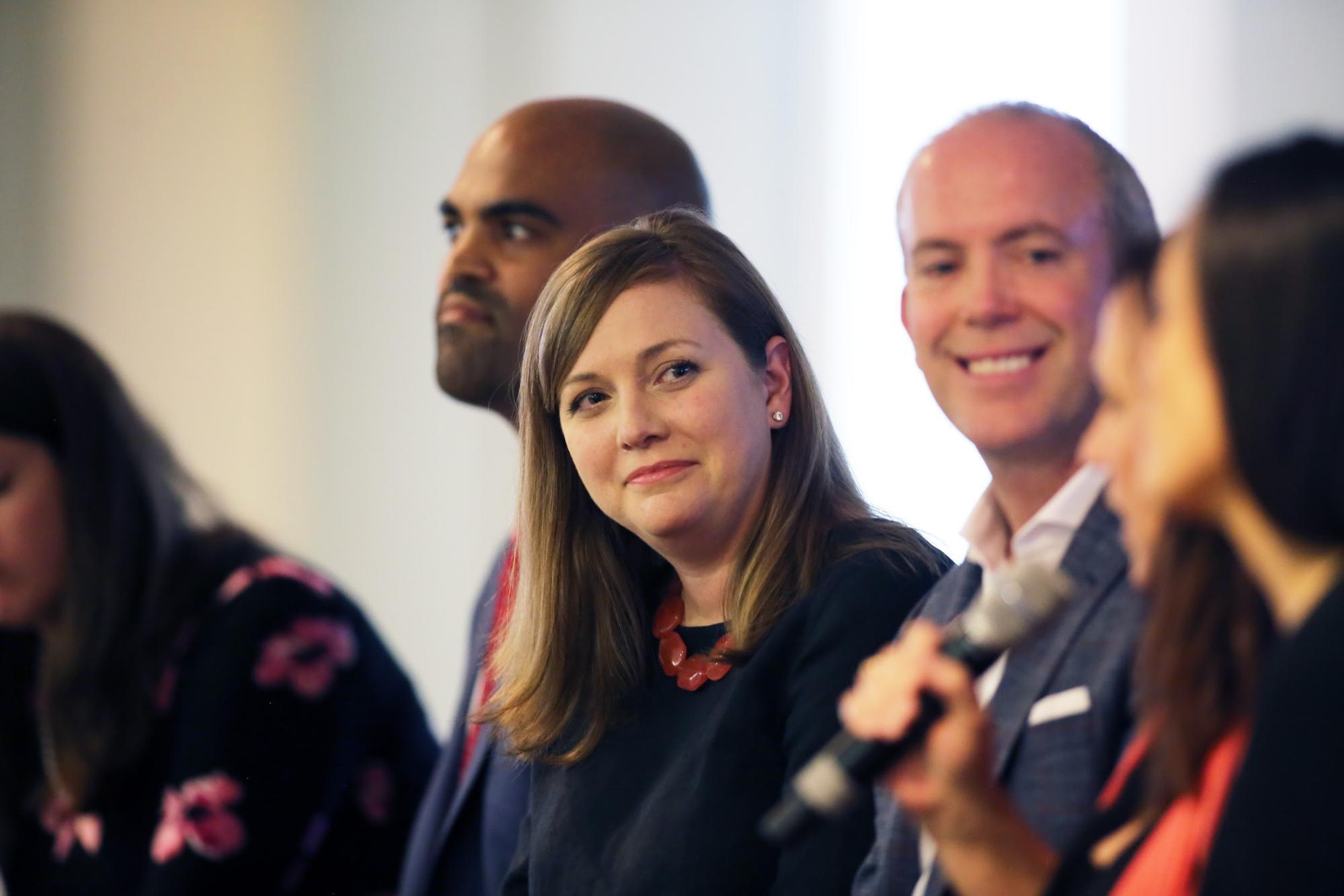Uniting politicians and the politically inclined from all corners of Texas, the 2018 Texas Tribune Festival featured panelists who covered key issues including gerrymandering, voter apathy and education reform.
Story by Swetha Berana
Photos courtesy of the Texas Tribune
One on One with Eric Holder
Former Attorney General Eric Holder sat down with moderator and New York Times staff writer Emily Bazelon as he tackled the issue of gerrymandering. Projects like the widely-publicized REDMAP, which led the Republican party to gain 700 seats in the state legislature in 2010, are becoming more prominent with the increased use of gerrymandering technology, especially since those who draw district lines are often partisan themselves.
Holder suggested giving the job of redistricting to independent commissions — a system used in states like Iowa to visually and ideologically even out the voter composition of districts to more closely match the demographics of the state. Unfortunately, the states that are the most opposed to using this system tend to those in which party lines are also deep-rooted. Holder called these states the “12 target states” and Texas was one of the first on the list. Holder urged the audience to understand that fair redistricting practices are a key component of voting rights. Mentioning women and minorities who have unique policy concerns but are not well-represented in the legislature, he asserted the importance and relevance of this topic. “People need to understand that gerrymandering has an impact in their day-to-day lives,” Holder said.
Education Reform that Makes the Grade
America is increasingly become a majority-minority nation and this growth in diversity is visible in most in urban areas. Yet, public schools within and beyond urban areas, are not reflecting this racial diversity. For example, the average white student’s public school had a black student enrollment of around ten percent in 2010. A panel on education reform addressed this issue, labeled by EdChoice CEO Robert Enlow as “a tiered system” that reinforces division.
Randan Steinhauser, school choice proponent and co-founder of the strategy firm Steinhauser Strategies, said school choices matters because of the difference in quality of education. “These families [exercising school choice], for some reason or another, just don’t want public because one size doesn’t fit all,” Steinhauser said. Enlow echoed her sentiments, adding that unlike his home state of Indiana, Texas does not provide a path for public school funds to help students attend a charter or alternative school.
On the other side of the “public vs. school choice” debate was representative Gina Hinojosa, a former Austin Independent School District board member. She cites her own upbringing as a prime example of why public education has been unsuccessful in America. Hinojosa herself graduated from UT Austin with a Plan II Honors degree — a program she found out about because her friend told her about it, which she pointed to as an example of one the biggest pinnacles of racially and socioeconomically diverse public education. “It’s not just about adults and teachers,” Hinojosa said. “It’s about kids educating and informing other kids.”
Public education has had a long and not always illustrious history, however. Even post Brown v. Board, the vestiges of slavery and segregation reflect on school ratings, exemplified by Worthing High School in the predominantly black Sunnyside neighborhood of Houston. Worthing has been ranked worse than 90.2 percent of Texas high schools due to ineffective teachers, security threats and the fact that two-thirds of students zoned for the school choose to go somewhere else. Dallas education policy adviser and nonprofit CEO Todd Williams cites the recent success of Dallas’s public school system, describing the increased offerings of pre-K, early college and industry-specific schools. These are different from the traditional “private or charter school” model. To equalize the socioeconomic playing field, there is no academic entrance exam or metric by which students are admitted.
The role of teachers is often understated in the discussion about the quality of America’s public schools. It is a well-known fact that teachers in America do not receive the same earnings and recognition as those of nations with better developed education systems. “We need to get our best and brightest into teaching,” Williams said, encouraging a deep-rooted shift in how America educates students and views teachers.
The Blue Team: Democratic Congressional Candidates
For the first time in decades, Democrats are making a play for all 36 of Texas’s congressional districts. This panel at the Texas Tribune Fest featured candidates of various backgrounds united by a common thread: none of them have ever served in public office before.
However strange the panel’s lack of direct experience may be, there is actually an upswing in Democratic candidates, especially in the south, without previous policy experience. Evidently, the current political climate has enraged many in Texas as the percentage of southern Democrats swings to almost fifty percent. As M.J. Hegar, 31st district candidate and retired Air Force officer, puts it “military veterans run where the fire is. And [the south] is where the fire is right now.” In this era of rapidly increasing hyperpartisanship, which Hegar describes as “leading to people turning off their televisions,” the candidates agree that a focus on policy issues and unbiased representation of their constituency rather than party platform is more important than ever.
Extensively discussed throughout the Texas Tribune Festival, polarization has led to voter apathy as moderates in heavily red or blue states neglect their civic duties. “We are often turned off by tyranny,” Hegar explains, “but it’s apathy that’ll do us in.” The candidates on the panel aim to combat this issue by focusing less on their party platform and more on urgent issues that are affecting Americans. “The vote belongs to the district,” Democratic candidate Lizzie Pannill Fletcher emphasizes, “not the party, or party leaders.”
When asked about their support of Speaker of the House Nancy Pelosi, the panel all agreed that it was a “disingenuous question,” as put by Hegar. Emphasizing the panel platform over name and seniority, Democratic candidate Joseph Kopser also expressed an urge to push for more youth and vitality in Congress, citing that many of the politicians currently serving were elected in the ‘80s due to the extremely high incumbency advantage. “Even if [Pelosi isn’t re-elected]”, Kopser said, gesturing on both sides to Fletcher and 23rd district candidate Gina Ortiz Jones, “I assure you all that the voice of women will not only be heard but represented in a way never heard before.”
Though voters will have to push to combat incumbency, the panel incited a rush of energy and hope for a new type of representation in Congress from people who more closely mirror the policy concerns and backgrounds of their constituency. “It’s not about what you’ve done, but what you’re willing to do in the interests of this country,” Jones said.
















































